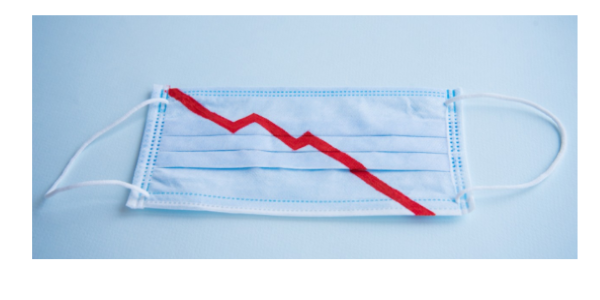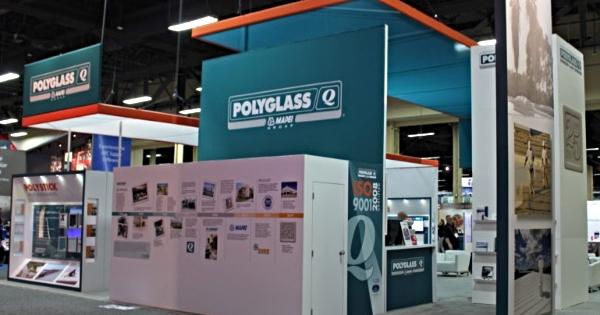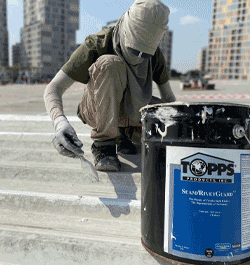UP TO THE MINUTE
NRCA's Reid Ribble Q&A: 'Major Declines' in Sales, Shipments; Some Signs of Hope

By Gary Thill, IRE.
With nearly 10 years in Congress and almost 30 years as a roofer himself, few people are more qualified to assess the current situation — and provide future forecasts — than NRCA CEO Reid Ribble.
Recently, Ribble sat down with IRE Business Update for a far-reaching Q&A covering everything from the new round of PPP to ongoing pandemic-recovery lobbying efforts to what the new normal may look like for the industry.
Q: Congress just passed a new bill for an additional $310 billion in PPP. What else is NRCA lobbying for to help roofers recover from the pandemic and what do you expect to come next?
A: We have begun the process of weighing in on restarting the economy and how to do it safely. We are working alongside our other roofing industry associations and communicating with our nation’s governors about reasonable ways to reinvigorate construction work in their states. We have also lobbied for certain tax provisions for contractors and solar credits.
Q: What’s the best indicator for how severely the roofing industry has been affected by the pandemic?
A: We have seen a dramatic decline in residential roofing material sales, as well as a slowdown in commercial roofing material sales. The decline in sales is driven by a few factors. On the residential side, consumers are wary of having people they do not know at their homes, and the impact of 20 million Americans being laid off of work has them cautious of spending money at the moment. Also, they are affected by work-from-home quarantines throughout the country in regions where roofing is not deemed essential. Commercial customers are seeing slowdowns not just from the regions where work is not allowed but also from massive closures of retail and restaurants. That work has come to a halt. Several states, such as Pennsylvania, Michigan, California and New York, have greatly restricted or even prohibited roofing work unless it is an emergency.
Q: The pandemic has already caused a number of issues for roofers. What’s the next challenge you foresee for them?
A: Cash flow. Contractors are advised to pay close attention to their accounts receivable and aggressively manage expenses during this time. The economy will be slow to recover, and cash will be king going into the last two quarters of the year.
Q: The most recent NRCA townhall showed more than 80 percent of roofers reporting a sales decline. What do you estimate the overall financial impact of the pandemic will be on the roofing industry in lost annual sales? Or, how much revenue do you project the pandemic will cost the industry as a whole?
A: It's very difficult to predict at this point in the pandemic cycle. Some states are talking about reopening their economies in May while others are waiting until June or even July. It is fair to say the entire world is in an economic recession. We expect the impact to be significant.
Q: Some roofers have reported that the pandemic has had little effect on their business. What are the two or three best practices of these roofers that others should emulate?
A: No. 1 is communication with your employees and especially your customers regarding the steps your company has taken to practice good hygiene and sanitize tools and equipment, trucks and even materials. Customers are more willing to work with conscientious contractors. Second is an openness to expanding the type of roofing work your company does. If you do not have a service department, for example, now might be a good time to start one. We anticipate institutional work will continue, so even if you haven’t bid school projects in the past, now may be a good time to start.
Q: What do your political instincts tell you about when the economy will reopen and what that will look like?
A: There is great pressure on politicians to restart the economy as soon as possible. This is balanced by the countervailing pressure of constituents that want to be assured it is safe to do so. There are only bad choices here. I expect the recession to last into 2021. The U.S roofing industry, however, is better positioned to manage this recession because almost all roofing materials are sourced here in the U.S. The consistency of our supply chain coupled with falling energy prices will serve to help the roofing industry get through a tough period.
Q: The industry was fighting a labor shortage. How will the pandemic affect that labor shortage?
A: With 25 million workers unemployed in the U.S., I expect the roofing industry to capture some of those workers and provide the high-paying jobs we are already known for. If the recession is short-lived, the industry should be a winner in the race for labor. However, the longer the recession goes on, it will cause roofing companies to lay off workers. These workers often do not return to the industry, and in that case, it will make the labor shortage worse when the economy recovers.
Q: Many roofers report that they have a backlog of work that’s keeping them afloat. How long do you think the backlog will last before they run out of work and what recommendations do you have for when that happens?
A: Backlogs vary widely around the country making this a very difficult question to answer with any certainty. My recommendation is to take this time to train and equip your team. Train workers to be the most efficient high-quality installers available. Take advantage of NRCA’s online training programs like TRAC. Set your company apart by using NRCA Pro Certification for your skilled workers. Create a better value proposition this way by separating your company from everyone else. Make sure your sales team is equipped with the most cost-efficient ways to do estimating and have them stay in constant contact with prospects.
Q: There’s talk of a $2 trillion infrastructure bill coming out of Congress as part of Washington’s effort to rebuild the economy. How do you see this bill benefiting roofers?
A: NRCA has been lobbying aggressively for an infrastructure bill that includes vertical construction. Most infrastructure spending is on bridges and roads, yet the country needs to modernize its schools, universities, airports and federal buildings. We need to ensure Congress recognizes this, and NRCA’s team in Washington, D.C., is there telling policymakers this message.
Q: The new NRCA "Message of Hope" video really shows that roofers are some of the most generous people when it comes to helping their communities. What’s your favorite story about roofers helping during the pandemic?
A: It’s really hard to pick just one. The industry has retooled to manufacture surgical masks and make sure our front-line emergency medical teams have the proper PPE. Roofing contractors have donated tens of thousands of N95 masks. They have also been front and center in food delivery. Everywhere you look in the country, there are industry giants donating back to their communities. The interesting thing to me is that none of this is a surprise. It’s simply who we are and what we have always been.
Original article source: IRE
Recommended For You

Polyglass Cancels Participation in Remaining 2021 Trade Shows and Events
Read More ...
Raise the Roof at This Year’s IRE Charity Concert!
Read More ...
It’s Time for a Girls’ Retreat - Register for NWiR Day!
Read More ...













Comments
Leave a Reply
Have an account? Login to leave a comment!
Sign In